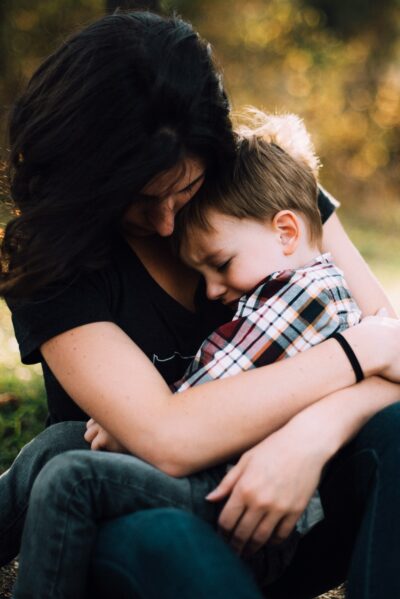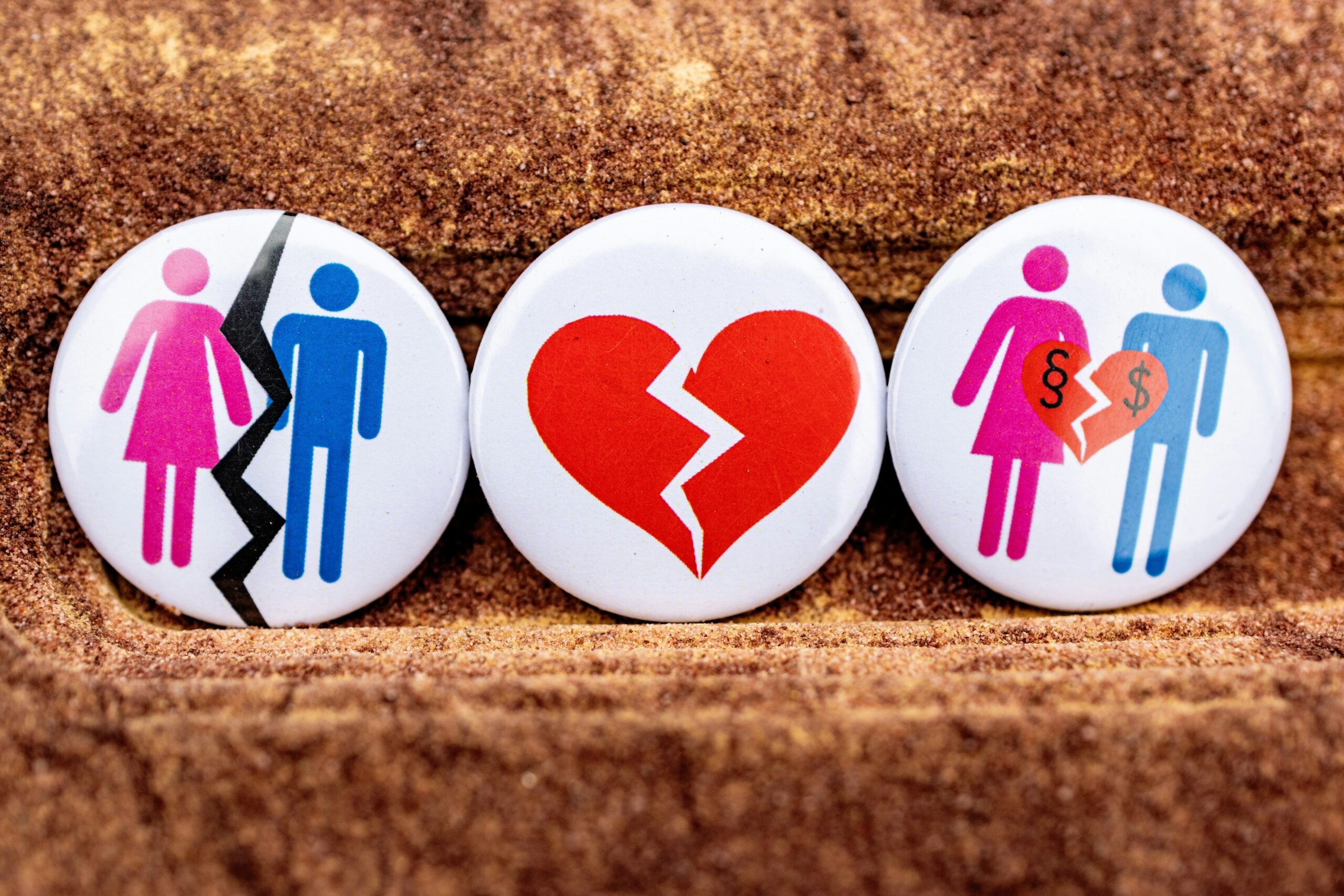Coping with divorce can be both exhausting and emotionally challenging, as it represents the end of something that was once cherished. As the 1999 film ‘The Story of Us’ poignantly captures, ‘It’s not a war. It’s not a battle. It’s the end of something that was once wonderful.’ This movie tells the story of a married couple on the brink of divorce after 15 years together, exploring the ups and downs of their relationship through flashbacks that highlight moments of love, conflict, and growing apart. It effectively illustrates how divorce can feel like the disintegration of not just a relationship but one’s entire world—a life-altering event that affects not only the couple but also their children, extended family, and friends. From a therapist’s perspective, divorce often leads to a profound sense of loss, disorientation, and uncertainty. Understanding the most difficult aspects of divorce, its impact on children, and how to move forward is essential for healing and growth.
Coping with Divorce: Four Most Difficult Parts on Individuals
Divorce is challenging for the individual because it represents a profound loss on multiple levels—emotional, psychological, social, and sometimes financial. Let’s explore four of the most challenging parts of divorce for individuals.
Emotional Turmoil and Grief:
 Divorce brings with it the death of a marriage, a relationship you once nurtured. The grief associated with divorce can be profound, similar to the grief experienced after a death. It can lead to a whirlwind of emotions—sadness, anger, relief, fear—all happening at the same time. The emotional rollercoaster that involves twists and turns and loopy loops can make life after divorce difficult to see a path forward, and many struggle to accept their new reality.
Divorce brings with it the death of a marriage, a relationship you once nurtured. The grief associated with divorce can be profound, similar to the grief experienced after a death. It can lead to a whirlwind of emotions—sadness, anger, relief, fear—all happening at the same time. The emotional rollercoaster that involves twists and turns and loopy loops can make life after divorce difficult to see a path forward, and many struggle to accept their new reality.
Loss of Identity:
Many people tie their sense of self to their role within a marriage. Over time, identity becomes intertwined with being a spouse, a partner, or a member of a unit. Divorce shatters that identity, leaving individuals feeling lost or unsure of who they are outside of the relationship. The idea of “we” dissolves into “me,” and rediscovering what that means can be daunting. We generally become nervous when we meet new people, the same feeling occurs as we have to reintroduce ourselves to ourselves.
Financial Strain:
Divorce often leads to significant financial changes, and these can create stress and anxiety. Whether it’s splitting assets, managing child support, or downsizing from a dual-income household, the financial burden can be overwhelming. Many struggle with how to adjust their lifestyle or find stability after the financial impact of divorce.
Loneliness and Social Shifts:
Divorce doesn’t just affect the romantic relationship—it can also impact friendships, family dynamics, and social circles. People may find themselves isolated, losing mutual friends, or even feeling judged by those around them. This sense of loneliness can make the healing process even harder, as there’s a loss of support and connection when it’s most needed. You may also experience a sense of betrayal, as people who you once counted on for support have suddenly disappeared or stopped answering.
Coping with Divorce: Four Ways Divorce Impacts Children
While divorce is primarily an adult decision, children are deeply affected by its outcome. The ways divorce impacts children vary depending on their age, emotional maturity, and family dynamics, but the following are common:
Emotional Distress:
 Divorce can shake a child’s sense of security. Children may feel sadness, anger, confusion, or guilt. They often internalize the divorce, believing they are responsible for the breakup or that they did something wrong. This emotional turbulence can affect their mood, behavior, and even school performance.
Divorce can shake a child’s sense of security. Children may feel sadness, anger, confusion, or guilt. They often internalize the divorce, believing they are responsible for the breakup or that they did something wrong. This emotional turbulence can affect their mood, behavior, and even school performance.
Fear of Abandonment:
Children often fear that if one parent can leave, the other might too. This fear of abandonment can manifest as separation anxiety or clinginess, especially in younger children. For older children, this fear can show up as rebellion or acting out, stemming from deep-seated insecurity, and can also impact their relationships in the future.
Difficulty Adjusting to New Routines:
Divorce often means new living arrangements, schedules, and routines. Adjusting to split custody, moving homes, or even just seeing parents in new roles can be confusing and overwhelming. These shifts can cause stress, especially when children feel like they’re being pulled between two worlds.
Loss of Trust in Relationships:
As children witness the separation of their parent’s marriage, they may begin to question the reliability of relationships in general. Adolescents, in particular, may struggle to form meaningful romantic connections later in life due to the fear that all relationships will eventually fail.
Coping with Divorce: Three Ways to Talk to Your Child
Talking to your children about divorce is a delicate process, and how you handle these conversations can have a lasting impact on their emotional health.
 Be Honest, But Age-Appropriate:
Be Honest, But Age-Appropriate:
Children need to know the truth, but it’s crucial to tailor the information based on their age and emotional capacity. Young children need simple explanations, like “Mom and Dad won’t be living together anymore, but we both still love you very much.” Older children and teens may need more details but always ensure the focus is on reassuring them they are not at fault.
Validate Their Feelings:
Give your children the space to express how they feel about the divorce without judgment. They may be angry, sad, or even relieved. It’s important to listen, validate their emotions, and let them know it’s okay to feel how they are feeling. This emotional validation can help them process the situation more healthily. I remind parents to be extra mindful of their feelings at this moment. During this conversation, it is important for us and adults to manage our feelings and give our time and attention to the hard feelings our children may be experiencing with the news.
Reassure Them of Stability and Love:
Children need to know that while their family dynamics are changing, they are still loved and that both parents are committed to their well-being. Reinforce the idea that although the marriage is ending, your role as their parent remains unchanged. Provide them with consistency and reassure them that their needs will continue to be met.
Coping with Divorce: Affects on Identity
One of the most overlooked but deeply impactful aspects of divorce is the loss of identity. For years, you may have thought of yourself in relation to your spouse—either as their partner, as part of a family unit, or even socially through shared friends and activities. Divorce strips away those roles, leaving a person to reevaluate their sense of self, oftentimes resulting in feeling lost.
The loss of identity can feel paralyzing, but it’s also an opportunity for transformation. Divorce offers the chance to rediscover who you are as an individual. It can be a time of self-exploration, where you can reconnect with passions or hobbies that may have been lost during the marriage. Finding your identity post-divorce is not only about surviving the experience but about using it as a catalyst for personal growth.
Coping with Divorce: Four Ways to Grow From Divorce
 Rediscover Your Passions:
Rediscover Your Passions:
Divorce allows you to reflect on interests and hobbies that may have been neglected. Take this opportunity to explore activities that bring you joy, such as new hobbies, travel, or personal development.
Build Stronger Relationships:
Divorce helps you evaluate the relationships in your life—both romantic and platonic. It can be an opportunity to nurture stronger, healthier connections with friends and family, as well as to build better boundaries and communication skills in future relationships.
Focus on Personal Growth:
Divorce can be a powerful motivator for personal growth. You may find yourself more focused on self-improvement, whether that’s through therapy, developing healthier habits, or embracing new goals. This is the time to cultivate self-awareness and prioritize your emotional and mental health.
Develop Resilience and Independence:
While divorce is incredibly difficult, it also teaches resilience. You learn to navigate challenges, make decisions independently, and build a life that reflects your true values and desires. This newfound independence can help you feel more empowered and in control of your future.
Coping with Divorce: Conclusion
Divorce is one of life’s most challenging transitions, but it doesn’t have to define you negatively. It’s a period of profound change that, while painful, can also lead to growth, resilience, and a deeper understanding of yourself. By acknowledging the difficult parts of divorce, recognizing how it impacts your children, and focusing on healing, both you and your family can emerge stronger and more connected.
Explore Our Services at Bright Idea Counseling
 At Bright Idea Counseling, we offer a wide range of therapy services tailored to meet your unique needs. From individual and family therapy to specialized programs for stress management and mental health, our experienced team is here to support you every step of the way.
At Bright Idea Counseling, we offer a wide range of therapy services tailored to meet your unique needs. From individual and family therapy to specialized programs for stress management and mental health, our experienced team is here to support you every step of the way.
To learn more about how we can help you and your loved ones, click the link below.
Learn More
Discover the Support Your Family Deserves
 At Bright Idea Counseling, we understand that every family faces unique challenges and stresses. Whether you’re navigating the ups and downs of daily life or encountering more complex issues, our dedicated team is here to help.
At Bright Idea Counseling, we understand that every family faces unique challenges and stresses. Whether you’re navigating the ups and downs of daily life or encountering more complex issues, our dedicated team is here to help.
Don’t face these challenges alone. Reach out to us today to learn more about our personalized therapy services and see how we can support your family’s journey toward well-being and harmony. Contact us now to schedule a consultation and take the first step towards a brighter tomorrow with Bright Idea Counseling.



